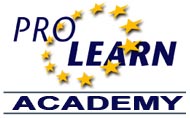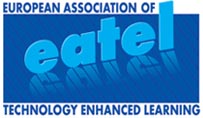CALL FOR PAPERS ViWo 2009
1st Special Track on Virtual Worlds for academic, organizational, and life-long learning (ViWo 2009)
First Special Track on
Virtual Worlds for academic, organizational, and life‐long learning (ViWo 2009)
This special track will take place during the IMCL 2009 in Amman, Jordan (April 22‐24) as a special
program item.
The Special Track ViWo 2009 provides an interdisciplinary forum for international scientists and
practitioners to discuss various aspects of learning and training in virtual worlds.
The 4th International Conference on Interactive Mobile and Computer Aided Learning, IMCL2009,
which will be hosted by Princess Sumaya University for Technology, Amman, Jordan. The conference
is part of an international initiative to promote technology‐enhanced learning and online engineering
world‐wide organized under the umbrella of the International Association of Online Engineering.
Background
Our society of the 21st century makes great demands on its members caused by rapid developing
and ever‐changing political, social, economical and technological situations. Consequently, it is
expected that members of the society keep pace with these mutable situations, adapt their skills and
expertise. As a result, modern instructional design, learning goals and processes as well as
appropriate learning environments must support the development of the aforementioned skills and
expertises. Consequently, educational approaches have changed dramatically over time from less
formal schooling in the agrarian society to remedial repetitive learning in the industrialization age to
learning with an understanding in today’s knowledge society. Based on that, different modern
educational strategies have been developed which includes aspects such as self‐directed learning,
collaborative learning, experiential‐based learning and actively participating. Educational approaches
have also been influenced by technology but have also increasingly applied technology over the last
decades, such as motion pictures, radio, television, computers and other emerging information and
communication technologies (ICT).
Last year’s hype surrounding the virtual world “Second Life” has also generated significant interest in
the education community. Although virtual worlds have been an active research topic for a long time,
technology was not ready for complex application scenarios since recent years. New interesting and
powerful platforms and tools, such as Second Life, Active Worlds, Multiverse, Open Croquet,
OpenSim and Sun’s 3D Wonderland, have been emerged applicable to complement or even replace
other knowledge transfer and learning settings. Modern virtual worlds are seen from an optimistic
viewpoint as a disruptive and transformative technology. However, it still remains unclear to some
extent where the real benefits and limitations of using virtual worlds as knowledge transfer and
learning environments are when compared to more traditional methods. In order to avoid the same
pitfalls of past e‐learning solutions by just applying traditional learning approaches to a new
technology, this special track is indented to offer a multidisciplinary platform which brings together
international researchers from different organizations in order to share their experience with this
technology.
Topics
We invite submissions of papers in the categories research, development, evaluation and best
practices that deal with virtual worlds for academic, organizational, and life‐long learning issues
including, but not limited to:
• Technological approaches, their limitations and how to overcome them
• Virtual worlds and mobile learning
• Virtual learning space design and architecture
• Modern learning settings
• Didactic and cognitive aspects
• New learning and teaching activities
• Interaction and behavior patterns
• Distance and blended learning
• Organizational learning, vocational training and certification
• Academic learning, assessment and feedback
• Collaborative and social learning
• Mixed Virtual world and classroom learning
• Knowledge Transfer and Collaboration
• Artificial Intelligence Approaches
• Usability and Human‐Computer‐Interaction
Important Dates
• 15 November 2008: Submission of the full papers (6 pages)
• 15 December 2008: Notification of acceptance
• 15 January 2009: Author Registration Deadline
• 15 February 2009: Camera ready version (6 pages)
• 22 ‐ 24 April 2009: IMCL 2008 Conference
Submission Procedure
File Types: DOC, RTF or PDF‐file
Language: English (British or US)
Style Guides & Template: http://209.61.205.141/form/IMCL2009%20Template.doc
Paper Submission System: http://www.conftool.net/imcl‐conference/
In case of problems or questions concerning the submission of papers, please contact the track chairs
at [email protected].
Notification of Acceptance and Publishing
Accepted papers will be published within the proceedings CD of the IMCL2009 conference. At least
one author has to register until January 15th 2009 after the notification of acceptance to be included
into the conference program. Authors fee is applicable only once per paper!
Some authors will be invited to submit extended versions of their paper for publication in a special
issue in J.UCS ‐ Journal of Universal Computer Science, http://www.jucs.org/.
ViWo 2009 Chair
Christian Gütl, Graz University of Technology, Austria
Frank Kappe, Graz University of Technology, Austria
ViWo 2009 Organization team
Alexander Nussbaumer, University of Graz, Austria
Mohammad Smadi, Graz University of Technology, Austria
ViWo Program Committee (preliminary, to be extended)
• Dietrich Albert, University of Graz, Austria
• Vanessa Chang, Curtin University of Technology, Australia
• Samir A. El‐Seoud, Princess Sumaya University for Technology, Jordan
• Baltasar Fernández‐Manjón, Complutense University of Madrid, Spain
• Judson Harward, MIT Center for Educational Computing Initiatives, USA
• Larry Johnson, New Media Consortium, USA
• Ralf Klamma, RWTH Aachen University, Germany
• Frederic Kleinermann, Vrije Universiteit Brussel, Belgium
• Narayanan Kulathuramaiyer, University Malaysia Sarawak, Malaysia
• Guido Lang, City University of New York, USA
• Stephanie Linek, Universität Graz, Austria
• Michelle Lucey‐Roper, Federatoin of American Scientists, USA
• Maggie A. McPherson, University of Leeds, UK
• Ignazio Passero, University of Salerno, Italy
• Stephe Quinton, Curtin University of Technology, Australia
• Lalita Rajasingham, Victoria University of Wellington, New Zealand
• Peter Reimann, University of Sydney Australia
• Torsten Reiners, University of Hamburg, Germany
• Diane Salter, University of Hong Kong, China
• Sandra Schaffert, Salzburg Research Forschungsgesellschaft, Austria
• Bernd Schmitz, Rheinische Fachhochschule Köln, Germany
• Marc Spaniol, Max‐Planck‐Institut, Germany
• Aaron E. Walsh, Grid Institute, USA
Further Information:
• Information about IMCL 2009: http://www.imcl‐conference.org/
• Travel Information: http://209.61.205.141/travel_info.shtm
• Tourist Information: http://www.visitjordan.com/
Virtual Worlds for academic, organizational, and life‐long learning (ViWo 2009)
This special track will take place during the IMCL 2009 in Amman, Jordan (April 22‐24) as a special
program item.
The Special Track ViWo 2009 provides an interdisciplinary forum for international scientists and
practitioners to discuss various aspects of learning and training in virtual worlds.
The 4th International Conference on Interactive Mobile and Computer Aided Learning, IMCL2009,
which will be hosted by Princess Sumaya University for Technology, Amman, Jordan. The conference
is part of an international initiative to promote technology‐enhanced learning and online engineering
world‐wide organized under the umbrella of the International Association of Online Engineering.
Background
Our society of the 21st century makes great demands on its members caused by rapid developing
and ever‐changing political, social, economical and technological situations. Consequently, it is
expected that members of the society keep pace with these mutable situations, adapt their skills and
expertise. As a result, modern instructional design, learning goals and processes as well as
appropriate learning environments must support the development of the aforementioned skills and
expertises. Consequently, educational approaches have changed dramatically over time from less
formal schooling in the agrarian society to remedial repetitive learning in the industrialization age to
learning with an understanding in today’s knowledge society. Based on that, different modern
educational strategies have been developed which includes aspects such as self‐directed learning,
collaborative learning, experiential‐based learning and actively participating. Educational approaches
have also been influenced by technology but have also increasingly applied technology over the last
decades, such as motion pictures, radio, television, computers and other emerging information and
communication technologies (ICT).
Last year’s hype surrounding the virtual world “Second Life” has also generated significant interest in
the education community. Although virtual worlds have been an active research topic for a long time,
technology was not ready for complex application scenarios since recent years. New interesting and
powerful platforms and tools, such as Second Life, Active Worlds, Multiverse, Open Croquet,
OpenSim and Sun’s 3D Wonderland, have been emerged applicable to complement or even replace
other knowledge transfer and learning settings. Modern virtual worlds are seen from an optimistic
viewpoint as a disruptive and transformative technology. However, it still remains unclear to some
extent where the real benefits and limitations of using virtual worlds as knowledge transfer and
learning environments are when compared to more traditional methods. In order to avoid the same
pitfalls of past e‐learning solutions by just applying traditional learning approaches to a new
technology, this special track is indented to offer a multidisciplinary platform which brings together
international researchers from different organizations in order to share their experience with this
technology.
Topics
We invite submissions of papers in the categories research, development, evaluation and best
practices that deal with virtual worlds for academic, organizational, and life‐long learning issues
including, but not limited to:
• Technological approaches, their limitations and how to overcome them
• Virtual worlds and mobile learning
• Virtual learning space design and architecture
• Modern learning settings
• Didactic and cognitive aspects
• New learning and teaching activities
• Interaction and behavior patterns
• Distance and blended learning
• Organizational learning, vocational training and certification
• Academic learning, assessment and feedback
• Collaborative and social learning
• Mixed Virtual world and classroom learning
• Knowledge Transfer and Collaboration
• Artificial Intelligence Approaches
• Usability and Human‐Computer‐Interaction
Important Dates
• 15 November 2008: Submission of the full papers (6 pages)
• 15 December 2008: Notification of acceptance
• 15 January 2009: Author Registration Deadline
• 15 February 2009: Camera ready version (6 pages)
• 22 ‐ 24 April 2009: IMCL 2008 Conference
Submission Procedure
File Types: DOC, RTF or PDF‐file
Language: English (British or US)
Style Guides & Template: http://209.61.205.141/form/IMCL2009%20Template.doc
Paper Submission System: http://www.conftool.net/imcl‐conference/
In case of problems or questions concerning the submission of papers, please contact the track chairs
at [email protected].
Notification of Acceptance and Publishing
Accepted papers will be published within the proceedings CD of the IMCL2009 conference. At least
one author has to register until January 15th 2009 after the notification of acceptance to be included
into the conference program. Authors fee is applicable only once per paper!
Some authors will be invited to submit extended versions of their paper for publication in a special
issue in J.UCS ‐ Journal of Universal Computer Science, http://www.jucs.org/.
ViWo 2009 Chair
Christian Gütl, Graz University of Technology, Austria
Frank Kappe, Graz University of Technology, Austria
ViWo 2009 Organization team
Alexander Nussbaumer, University of Graz, Austria
Mohammad Smadi, Graz University of Technology, Austria
ViWo Program Committee (preliminary, to be extended)
• Dietrich Albert, University of Graz, Austria
• Vanessa Chang, Curtin University of Technology, Australia
• Samir A. El‐Seoud, Princess Sumaya University for Technology, Jordan
• Baltasar Fernández‐Manjón, Complutense University of Madrid, Spain
• Judson Harward, MIT Center for Educational Computing Initiatives, USA
• Larry Johnson, New Media Consortium, USA
• Ralf Klamma, RWTH Aachen University, Germany
• Frederic Kleinermann, Vrije Universiteit Brussel, Belgium
• Narayanan Kulathuramaiyer, University Malaysia Sarawak, Malaysia
• Guido Lang, City University of New York, USA
• Stephanie Linek, Universität Graz, Austria
• Michelle Lucey‐Roper, Federatoin of American Scientists, USA
• Maggie A. McPherson, University of Leeds, UK
• Ignazio Passero, University of Salerno, Italy
• Stephe Quinton, Curtin University of Technology, Australia
• Lalita Rajasingham, Victoria University of Wellington, New Zealand
• Peter Reimann, University of Sydney Australia
• Torsten Reiners, University of Hamburg, Germany
• Diane Salter, University of Hong Kong, China
• Sandra Schaffert, Salzburg Research Forschungsgesellschaft, Austria
• Bernd Schmitz, Rheinische Fachhochschule Köln, Germany
• Marc Spaniol, Max‐Planck‐Institut, Germany
• Aaron E. Walsh, Grid Institute, USA
Further Information:
• Information about IMCL 2009: http://www.imcl‐conference.org/
• Travel Information: http://209.61.205.141/travel_info.shtm
• Tourist Information: http://www.visitjordan.com/





